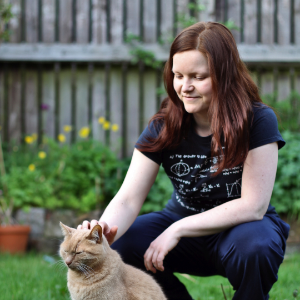
Wait... what?
Yes, become a friend with your calculator! And don't try to tell me you don't have one (calculator — I'm not questioning your status in terms of having friends, don't worry).
I suppose you're here, reading this article, because you need maths in your life right now, most likely for academic purposes. That means you're probably a student working towards some kind of exam (or a parent trying to help your dear young learner). And that's exactly why you need your own calculator, and most of all, you need to know it — just as you know your friends.
Knowing your calculator well (and getting the same type as required/recommended by your school—or exam provider—for your maths exams) is one of the key tricks to boost your confidence while taking maths exams. I guarantee that your heartwarming relationship with your calculator will help you achieve better results.
Do you know how to switch between degrees and radians on your calculator? I'm not talking now about the fact you should know what those terms mean, how to define them, and when to use them. But do you know where π [pi] is (yeah, that weird number used for calculating the circumference and area of circles and for plenty of other stuff)? Where's the button for combination numbers? How do you type in powers other than squared and cubed? How do you swap results from decimals to fractions and vice versa? How does your calculator display recurring numbers? Do you know how to program it to get the results in the form you prefer? And what is that weird 10x or EXP...?
TOP TIP: Curious about specific models and how to make them do what you want?
Many calculators are similar, but some resemble an alien contraption from the future compared to what you may be used to or have seen others using... So if in doubt, look up your calculator model number online (down to the specifics, such as "Casio fx-83GT PLUS") and find relevant resources; often, you'll find specific maths magic in various helpful (and usually short) video tutorials.
Let's have a look at the exams you're going to take in the near future and ask yourself: Do I know my calculator, and can I do all the necessary magic with it? If not, I'll ask you: Do you think you'll have time during your exams to find out all the stuff you don't know about your calculator yet?
Well, that's exactly why you need to become friends with your calculator.
P.S.: Make sure your new maths friend doesn't die during exams! It may sound weird, but I was taking some of my exams with a tiny screwdriver and spare batteries in my pocket. This was a direct result of an unexpected death of my calculator's batteries once in the past (luckily, not during an actual exam at that time). A very kind school janitor helped me change the batteries back then (he had the perfectly fitting screwdriver and even spare batteries – what a star). But better not rely on kind janitors during your exams.
On the other hand, I guess you might get a spare calculator in such a case.
However, I like my calculator, and I don't want to be in a situation where I'd have to use another one – what if it's a different model and we won't be friends (just yet) with that one?!


